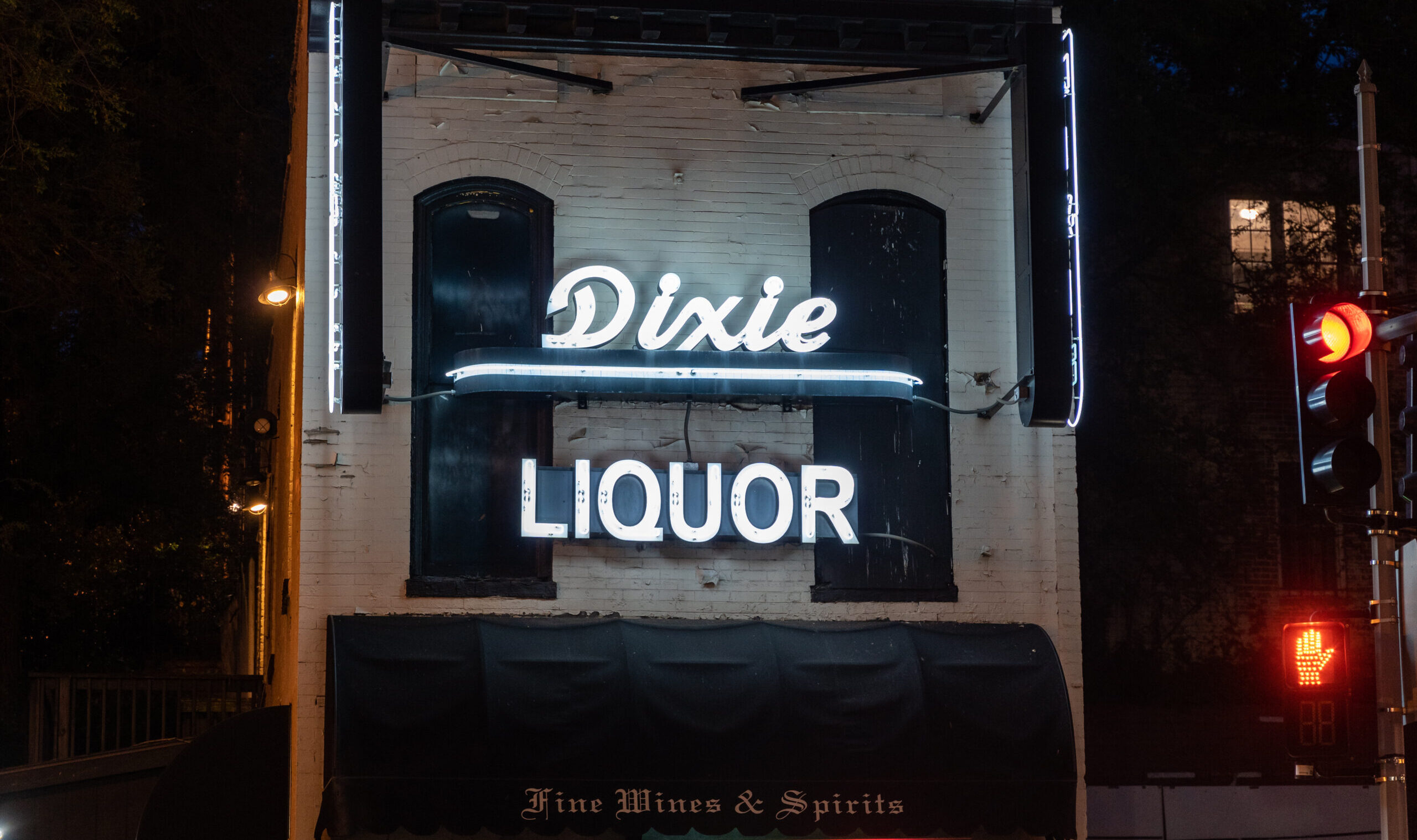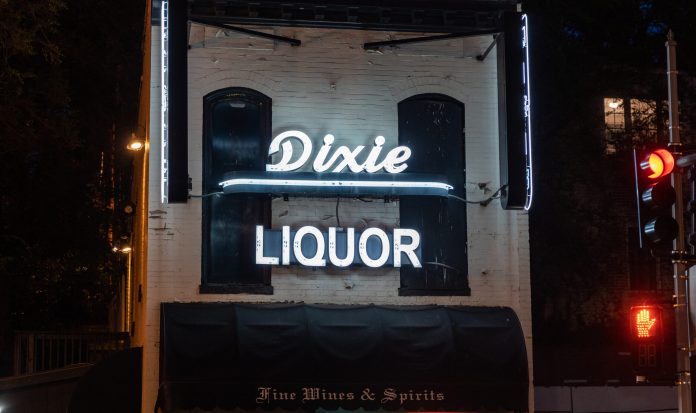
Dixie Liquor is the oldest spirit shop in Washington, D.C., but by the beginning of next year, it may become just another dope depot. The liquor store, which has been a landmark of Georgetown since it opened in 1934, announced in early October that its landlord is transferring its lease to the owner of a marijuana dispensary—unless the community fights back.
The plea for community involvement was, to put it mildly, graceless. Dixie Liquor posted the news on its company Facebook page, along with this harangue: “Is this what Georgetown wants? This would make 23 Cannabis retailers in Georgetown alone. The best we can do is protest the Cannabis License Approval with Washington, D.C., or protest directly with the Dixie Liquor Landlord.” And to show that its owners meant business, Dixie Liquor posted a screenshot of the landlord’s name, phone number, and personal email.
Within hours, the Facebook post was gone, but the news was already widespread. The property’s landlord, Ronald Miller, said that there is no guarantee that the spot will be filled by a cannabis dispensary: He is exploring other options as well.
“The days of the Mom and Pop Liquor Store are dwindling,” he said in an email, adding of his future plans, “The goal is to maximize the property’s value now and into the future to do what is best for my family.”
The decision regarding cannabis licensing is now in the hands of the D.C. Alcoholic Beverage and Cannabis Administration, which will decide the store’s fate by early December. Dixie Liquor did not respond to media requests—mine or anyone else’s—but the store’s prospective replacement was happy to explain exactly what could be happening, if he gets his way.
“It’s an iconic property,” James Kahn, the owner of JKEntity, LLC, told the Georgetown Voice of his desire to fill the spot with a dispensary. Kahn, who is also an ordained rabbi, cited as especially attractive the fact that Dixie Liquor is right on M Street, Georgetown’s main drag, and that the fact that it is the first building drivers see when they cross Key Bridge from Northern Virginia. He added that he could envision his pot shop as a place that “contributes meaningfully” to Georgetown at large.
“We want to be good neighbors,” he said. “I want to be a dispensary that I would be happy to live next to, that I’d be happy for my kids to live next to.”
Unstated in all of this, of course, is the real reason why the property is attractive to purveyors of vice: It is a five-minute walk from Georgetown University. And, at the same time as college-aged tastes for alcohol and tobacco are declining, young people’s desire for weed—legal weed—is on the rise. There are already about two dozen dispensaries in Georgetown alone and more than 200 more throughout the rest of the city. Though their wares are technically only available to those with a city-issued card, D.C.’s regulations allow residents to “self-certify” by presenting an ID, filling out a form, and paying a small fee in the dispensary itself. The barrier to entry is very low.
That final fact of course has not gone unnoticed by people who live in the area. “It’s close to a university, it’s close to a high school, it’s close to a middle school, an elementary school. It just doesn’t seem like the right location,” one Georgetowner said of Kahn’s proposal at a recent meeting of the Georgetown Advisory Neighborhood Commission.
Subscribe Today
Get daily emails in your inbox
The same complaint could be applied to Dixie Liquor in its current incarnation. There has always been something skeevy about the place. Until the city’s Costco opened in 2012, it was the biggest seller of Natural Light (about 40,000 cases annually) in Washington, D.C. It was frequently shuttered for selling to minors and seemed to change hands every decade. One owner, at least during my childhood, was famous for keeping the place open late on snow days to get the college kids extra drunk. “When we hear school is closed, we stay open until midnight, and we make sure sidewalks are clear,” he once informed the Georgetown student newspaper. “We’re going to get you guys drunk. Responsibly.”
And yet there is some melancholy romance about the place, too. Whenever I cross Key Bridge and see Dixie Liquor, especially at night, when the neon is all lit up, my mind drifts to the slouchy world of some jangly, pre-Swordfishtrombones Tom Waits song. The store is one of the few remaining relics of an older, shadier version of the nation’s capital. Dixie Liquor is said to have been John F. Kennedy’s local liquor store. Bill Clinton certainly got trashed off its products. My grandfather, when he was a Georgetown student in the 1950s, swore he saw Fidel Castro walking out with a bottle of rum.
Back in the Bush era, Dixie Liquor advertised itself as “the only privately owned monument in Washington,” declaring that “the more the world changes, the more Dixie stays the same.” That statement has been true for 90 years—a long time in Washington—but for how much longer?

